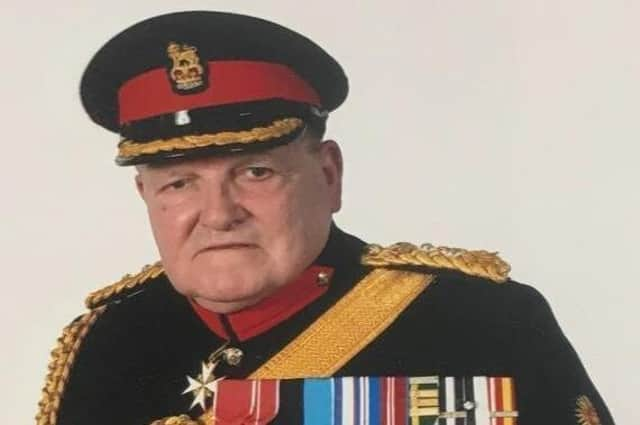Obituary: Professor Alan Roberts, clinician


Professor Alan Roberts, who has died at 87, was a consultant clinical scientist and chartered biologist who founded the Technology in Medicine section of the Royal Society of Medicine and became vice-president and an honorary fellow of the Society.
In addition, he was a Colonel in the Royal Artillery, deputy commander to the General Officer Commanding North East Military District, and honorary aid-de-camp to the Queen. He served also as Deputy Lord Lieutenant for West Yorkshire and as Pro Chancellor and chairman of the court and council at Leeds University.
Advertisement
Hide AdAdvertisement
Hide AdAs a scientist, he had an international standing in the field of clinical prosthetics, establishing a centre of excellence at the Bradford Teaching Hospitals NHS Trust, to which patients with facial and body deformities are referred worldwide.
Educated at Manchester Metropolitan University and then at Bradford University, Professor Roberts began his scientific career in Bradford, specialising in materials science and reconstruction surgery before branching into prosthetics in wound management.
His research in West Yorkshire resulted in a license for the skin adhesive Indermil, which has been adopted by surgeons around the world. A further licence followed for the prosthetic adhesive and skin cleansing system, Zenflosil.
For his work in the field, Professor Roberts was awarded the Prince Philip Medal for outstanding research achievements, followed by the MBE in 1982 and OBE in 2002.
Advertisement
Hide AdAdvertisement
Hide AdIn choosing to become an Army reserve officer, he was following the example his father, Major William Roberts. Professor Roberts commanded the Leeds University Officer Training Corps before his promotion to Colonel and Deputy Commander of North East Military District. He was also honorary Colonel Commandant of the Royal Artillery and Honorary Colonel of 269(WR) Battery 101(N) Regiment Royal Artillery.
The military life was not incompatible with his work as a clinician, and as national chairman of the Council of Military Education Committees he used his academic influence to secure the training of future army officers within the university system.
His influence was felt far beyond Bradford. He held visiting professor appointments in the US, Japan, France, Holland, Russia and elsewhere, and was guest lecturer to the Royal College of Surgeons on three occasions. He was also a member of the advisory board at the University of Malaysia School of Medicine and a former examiner to Sheffield University’s School of Clinical Dentistry.
In 2010, the Royal Society of Medicine awarded him its highest distinction, honorary fellowship for services to medicine.
He is survived by his wife, Margaret Mary (nee Shaw), their sons Martin and Adrian, four grandchildren and one great grandchild.
Comment Guidelines
National World encourages reader discussion on our stories. User feedback, insights and back-and-forth exchanges add a rich layer of context to reporting. Please review our Community Guidelines before commenting.